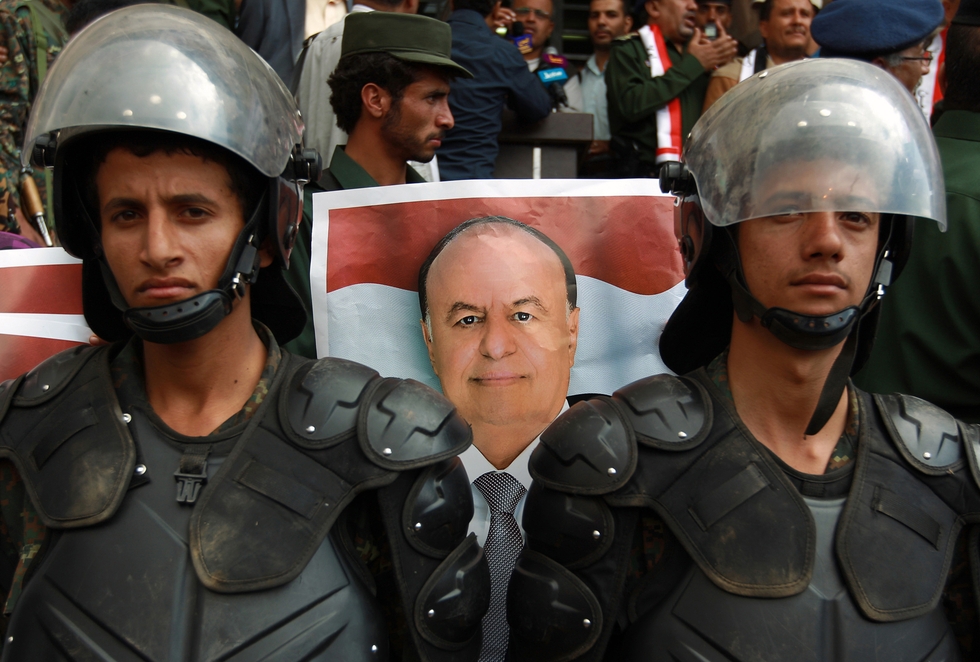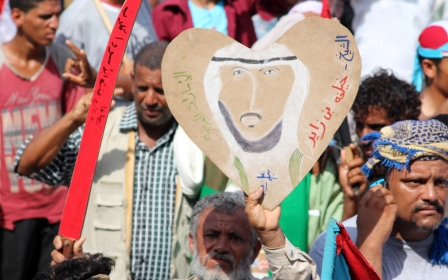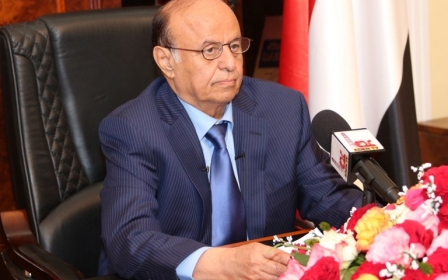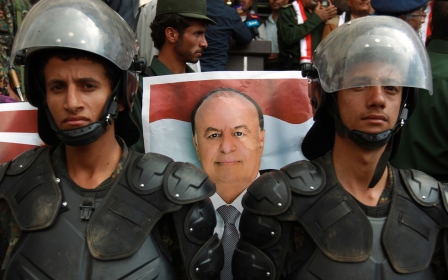UN calls for Yemen president to stand aside in peace plan

A new UN peace proposal to end a 19-month war in Yemen appears aimed at sidelining exiled president, Abd Rabbuh Hadi, and setting up a government of less divisive figures, according to a copy seen by Reuters.
Hadi fled the armed advance of the Iranian-allied Houthi movement in March 2015 and has been a guest of neighbouring Saudi Arabia ever since.
A UN Security Council resolution a month later recognised him as the legitimate head of state and called on the Houthis to disarm and quit Yemen's main cities.
But the Houthis and their allies in Yemen's army have said he will never return, accusing him and his powerful vice president, Ali Mushin al-Ahmar, of corruption.
The latest peace plan submitted by UN envoy Ismail Ould Cheikh Ahmed suggests Ahmar would step down and Hadi would agree to become little more than a figurehead after a Houthi withdrawal from the capital Sanaa.
It was not immediately clear if the men had been consulted on the plan. But their supporters have in the past insisted that previous agreements recognising Hadi as leader must be respected.
"As part of the signing of a complete and comprehensive agreement, the current vice president will resign and President Hadi will appoint a new vice president," the document says.
"After the completion of the withdrawal from Sanaa and the handing over of heavy and medium weapons (including ballistic missiles) Hadi will transfer all his powers to a vice president, and the vice president will appoint a new prime minister ... (who will form) a national unity government," it added.
Symbolic role
The proposal would technically confirm Hadi in office, as stipulated by the UN resolution, but leave him in reality with only a symbolic role.
Yemen's prime minister, Ahmed Obeid bin Daghr, said the government had not received a draft of the peace proposal from the UN, according to state news agency Sabanew.
Government officials have said they are unwilling to legitimise what they see as a Houthi "coup".
"We emphasise our conviction that all proposals are doomed to failure if (they don't reject the) excesses of the coup, which is the mother of all these calamities and the root of the evils," Abdullah al-Alimi, a senior official in Hadi's office, wrote on Twitter.
There was no immediate comment from the UN, or from Saudi Arabia, which backs Hadi and is leading a military coalition, including the UAE, trying to dislodge the Houthis.
But the UAE's foreign minister, Anwar Gargash, expressed his support for the UN plan on Thursday, saying on Twitter that "alternative options are dark".
"The road map represents a political solution to the crisis of Yemen ... It is time to leave behind the logic of arms and violence among Yemenis, and the road map gives a chance for reason and dialogue to prevail," he wrote.
The ongoing conflict in Yemen has killed at least 10,000 people and unleashed one of the world's worst humanitarian crises.
This article is available in French on Middle East Eye French edition.
New MEE newsletter: Jerusalem Dispatch
Sign up to get the latest insights and analysis on Israel-Palestine, alongside Turkey Unpacked and other MEE newsletters
Middle East Eye delivers independent and unrivalled coverage and analysis of the Middle East, North Africa and beyond. To learn more about republishing this content and the associated fees, please fill out this form. More about MEE can be found here.




